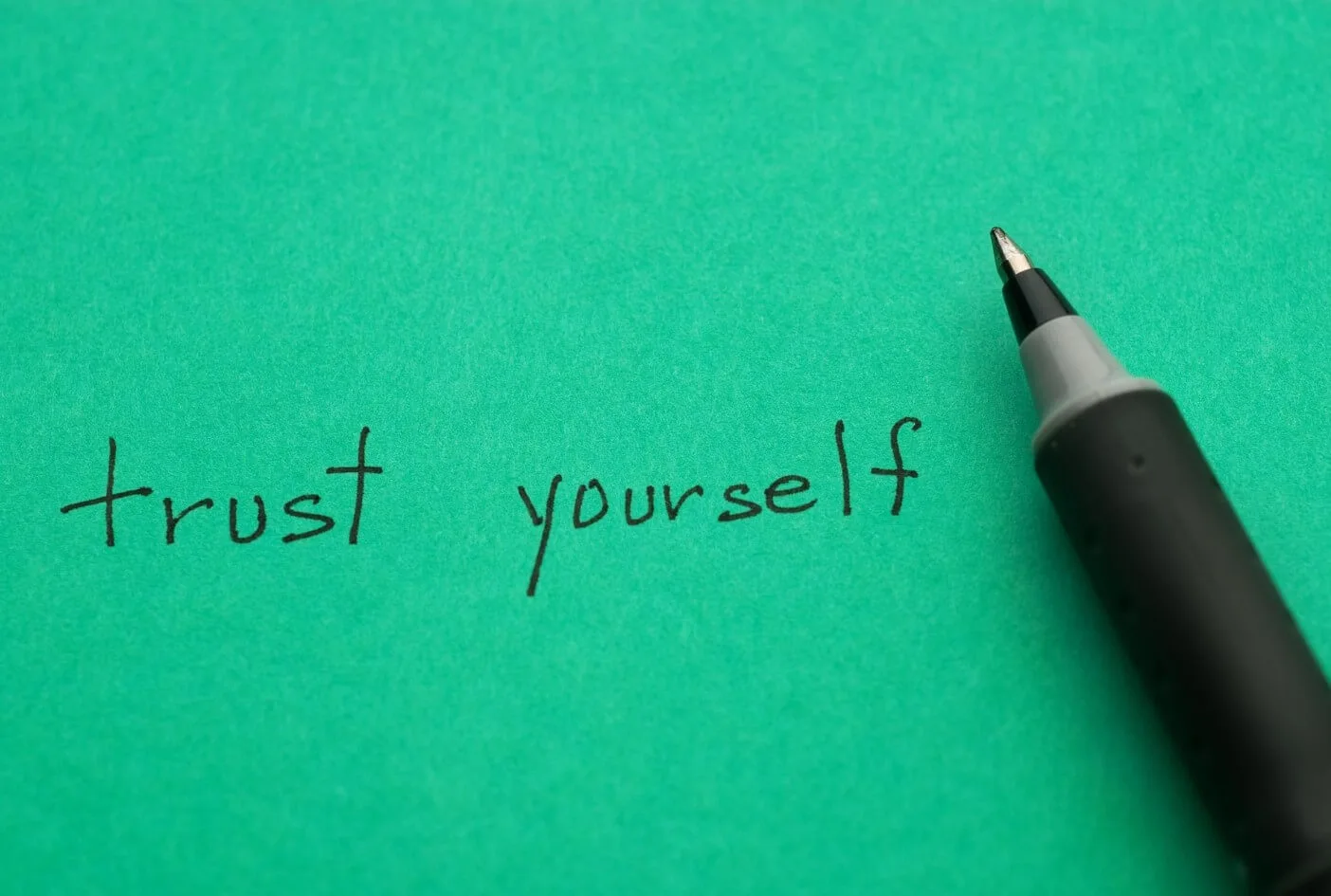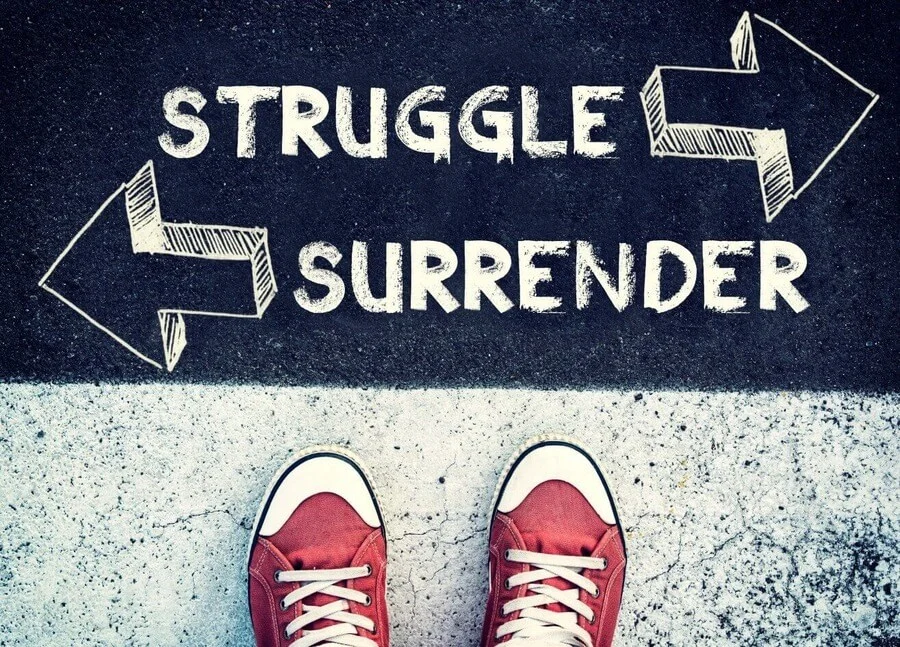A new teacher’s first day in the classroom can be incredibly overwhelming. So much can go wrong!
What if the kids play up? What if they bully me out of the classroom?? What if I lose my cool and throw an eraser at their heads???
Stahp! Your first day of teaching a new class doesn’t have to be so disastrous. (Especially that last issue – control yourself!)
If you plan ahead as a beginner teacher and come equipped with all the right tools, your first day will go much more smoothly. As cliché as it is, kids crave structure and knowing what to expect. And this secret weapon of structure will help eliminate a lot of your anxiety as well!
Once upon a time, I was a first-year teacher desperate for help. And 17 years later, right up until the day I quit, I was STILL getting the first-day teacher jitters whenever a new year started.
But that’s why I’ve created this teaching 101 guide for new and beginner teachers. Let there be no more jitters and rocky first days. We’re going to learn exactly what teachers should do on the first day of class, the classroom essentials to bring for that first lesson, and so much more MUST-HAVE advice for new teachers.
So are you ready, fellow educator-inos? Now it’s your time to get schooled!

The Experience of Your First Day of Teaching
After 17 years of teaching, the beginning of every new school year still brings uncomfortable feelings. There are too many unknown scenarios and possibilities for things to go wrong on the first day of school. In that sense, the experiences of students and teachers are actually very similar!

But thankfully, many of those fears are nothing like how the actual day will unfold. And the more you prepare for every possible scenario, the calmer you’ll feel when that first day of teaching actually happens. And the better it will go!
Unfortunately, we aren’t always given enough time to prepare for the first week of school properly. This might mean staying late during that pre-service week or even coming by on the weekend.
You won’t ever catch me advocating for spending any extra time on school grounds than you need to. (I’d usually say the exact opposite – don’t take on all the stress of teaching, and set that pattern early in your career.) However, in this case, the time you put in will go a very long way.
What to Do on Your First Day of School as a Teacher
I always felt uncomfortable about not doing something engaging on the first day of school. I knew that the students were doing the same routine in every class, and I didn’t want to bore them with logistics and first-day admin. But the truth is that those logistics go a long way toward creating a comfortable classroom community and setting the right tone for the school year.
So one terrific bit of advice for new teachers is to lean into the profession. You’re supposed to be a bit boring! Logistics IS what you do on the first day of class. The students don’t need to be engaged or excited about learning at the very start of the year.

It’s still smart to mix it up with a bit of rapport-building. Younger students will benefit greatly from a warm greeting, even if you don’t know their names yet. If you have the class all day, you could consider doing a scavenger hunt or team-building activity after all the housekeeping tasks are handled.
But first, do the housekeeping, logistics, and admin. Clear the to-do list of the boring but crucial stuff of a new class’s first day. Then finish the day off with some fun activities!
Get the Books That Started It All
Before the blog, the podcast, the merch store… there were the best-selling books.
If you like the content on this site, then you’ll LOVE the Teacher Misery books. They’re jam-packed with teaching insanity, ridiculous true stories, and all the commiseration about the profession you’ve come to know, adore, and respect.
Follow the links below to get your copies today!
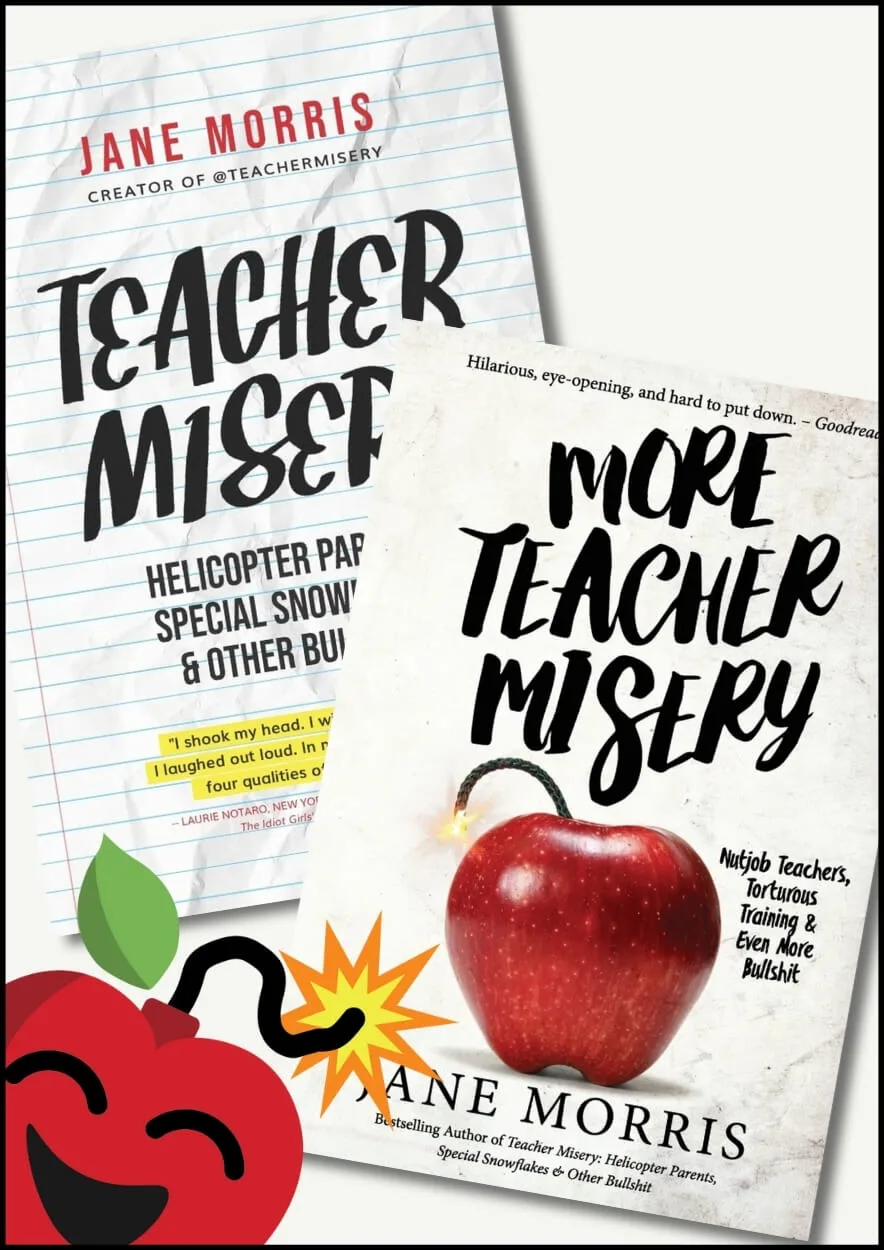
Teaching 101: A Beginner’s Guide for New Teachers
The first day of the school year should be one of the most manageable days for the teacher. I know that might sound impossible if you’re not a veteran teacher. But you just need to reframe how you see the day’s purpose.
Tell yourself that there will be very little teaching and learning on the first day. Focus mainly on setting the tone of the classroom and school year ahead as well as reviewing class rules and expectations.
And while you’re at it, stress less about the super awkward first-day “getting to know each other” activities. A little bit is ok… But believe it or not, students actually appreciate not being forced to do team-building activities or be put on the spot. It gives them time to get comfortable in the classroom environment without any stress.
A Lesson Plan for Your First Day of Teaching
To begin, let’s start at the very top: how to introduce yourself to students on your first day as a new teacher. I always greet students at the door, warmly but also authoritatively.
I also use this opportunity to hand out a blank index card to each student. There are instructions on the board that ask for them to write some basic information on the card. This includes their name, nickname, parents’ contact information, if their parents go by other names, email address, favorite subject, and their favorite books. Some of this information is repetitive, but filling out the information makes them think I am eager to contact home (which is good) plus gets our heads in gear for first-day admin.
Go over your classroom rules with a “non-negotiable” tone. This goes double if you are teaching middle or high school! I always thought these things were obvious, but different teachers have rules that vary. It can be extremely challenging for students to navigate the various personalities of their teachers.

So let them know if cell phones are the bane of your existence as they were for me. Surprisingly, a teacher down the hall might not care if the kids have their phones out during a lesson but will freak out if they ask to go to the bathroom too often. It’s important to consolidate these understandings on the student’s first day of class.

Then, review the syllabus and give a brief overview of what they will be studying. If there was a summer assignment, refuse to discuss this individually with them (because Lord knows there will be all kinds of excuses – not even remote learning changed that!). Instead, just go over basic expectations for that. It’s important that older students see you shut down any attempt to annoy you or buy their excuses.
After that, it’s time to select what to do on the first day of class! While I have tried various icebreakers and getting-to-know-you activities over the years, I’ve actually found that having the students do a silent activity for the rest of the class is better. It gives you a chance to breathe and take care of any administrative tasks that pop up. Plus, it sets a calm tone on the first day.
What kind of activity you set or how you want to handle student introductions on the first day of class is ultimately up to you. But the brass tacks is that it’s better to set a pattern of quiet focus on the first day rather than a bunch of rambunctious activities you’ll have to pull the students back from again on their second day.
Time-Tested Mistakes New Teachers Make
Ok, now it’s time for some BS-free thoughts for beginner teachers: the mistakes new teachers make and how to avoid them. Generally speaking, a lot of new teachers make the same time-tested mistakes,. Even veteran teachers still fall into these traps every now and again!
One of these mistakes is trying too hard to be fun, interesting, cool, or even engaging on the first day of teaching. If you are a fun and engaging teacher, the students will find this out eventually. You don’t have to win them over or prove anything at all. Be a bland version of yourself for now – it’s a long year ahead of you to tweak that.
Another mistake a lot of beginner teachers make on their first day is getting into little arguments over small details or letting students interrupt them. There are always going to be students who test the boundaries right from the start. You NEED to swiftly send the message on the first day of a new school year that you won’t allow that kind of thing to happen. Tell them that if they have a specific question or matter to discuss, they can stay after class or email you later on.
A trap I fell into at the beginning of my first year of teaching was trying to be someone I wasn’t. You will get a lot of advice from a lot of people, and some of it will involve not being yourself and being a whole lot more strict than your personality dictates. Personally, I disagree.
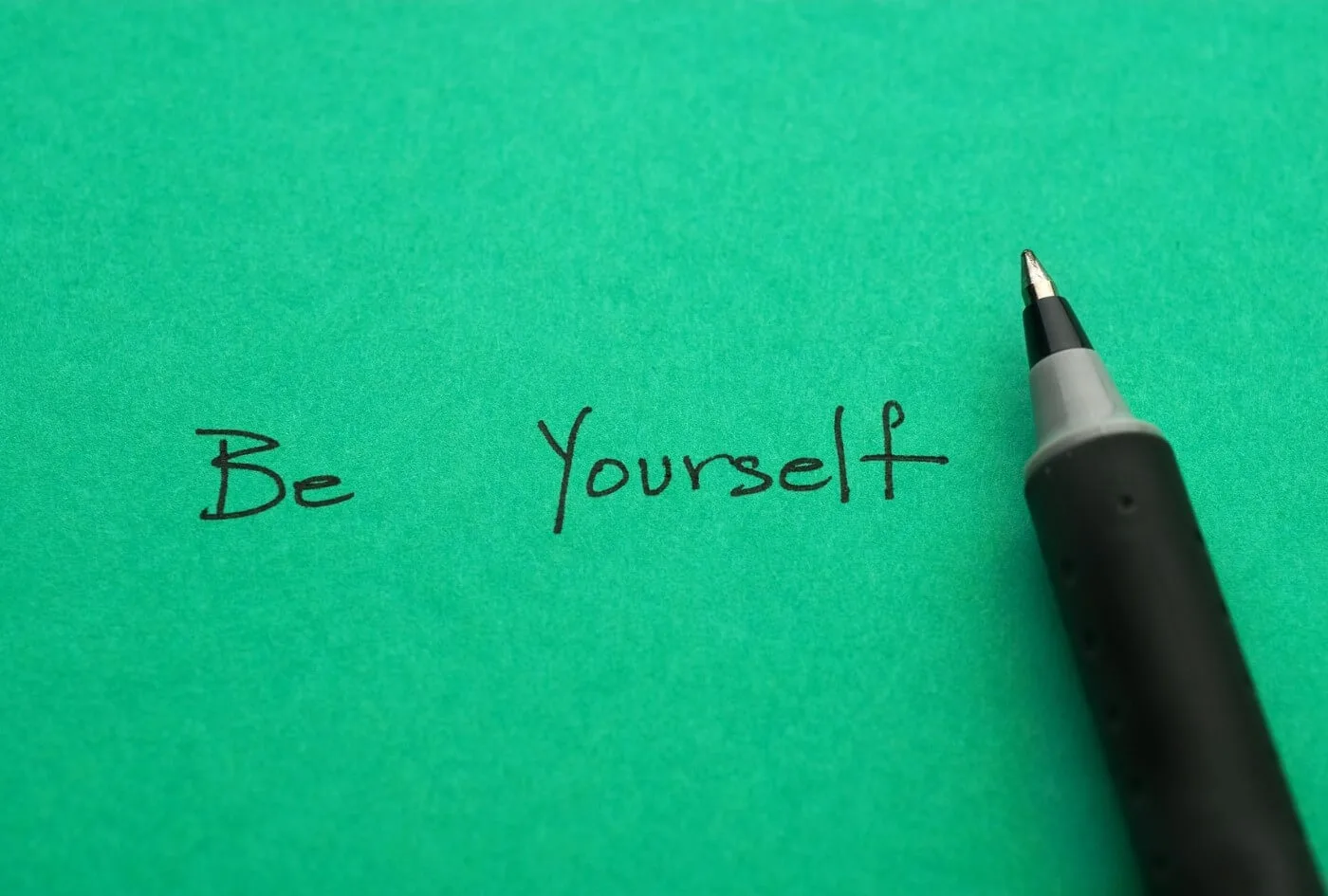
While you need to be firm in the beginning, that doesn’t mean you can’t be yourself if your personality is easy-going, lighthearted, and a bit silly. The more you try to squeeze yourself into the shoes of the teacher you think you are supposed to be, the more you will stumble. Be you. Know your rules and enforce them.
But still, be you. The experience of your first day and year of teaching, as well as your whole career itself, will be better for you if you stand in the integrity of who you are.
7 Classroom Essentials for New Teachers
While I don’t vouch for spending your own money on crucial classroom and teacher supplies, there are some essentials you will need that will make your life so much easier. Until you form your own systems for handling paperwork and all the classroom shenanigans you should have a plan for your first day of teaching a new class.
These few items have been selected from my nearly 20 years of experience and will help a great deal with that!
Everyone always remembers a good ending.
1. A Copy of Teacher Misery
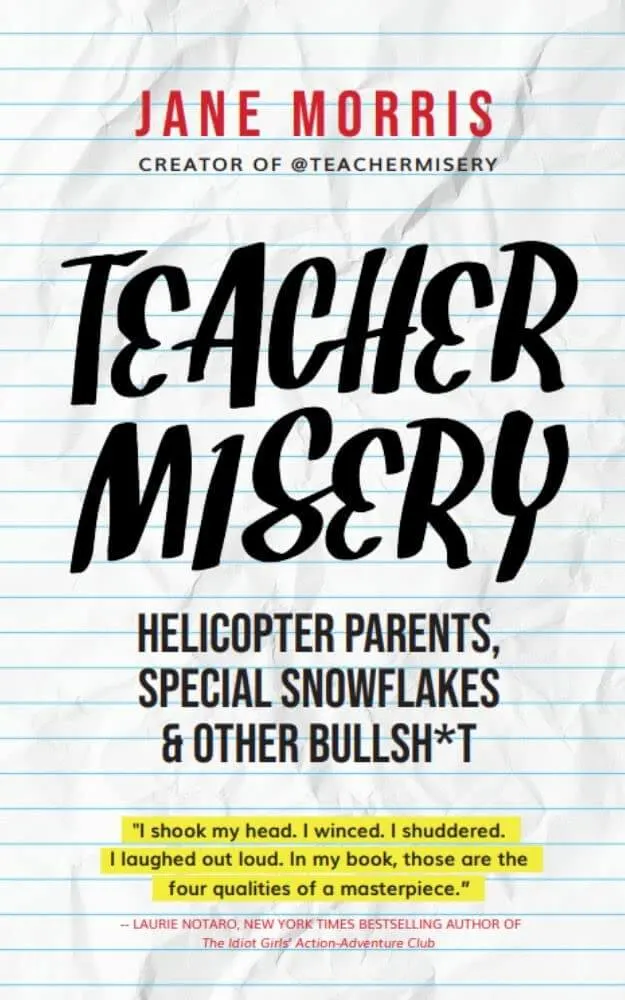
Hah! Shameless plug alert. :P
Jokes aside, it’s a top-notch book. It’s got tons of hilarity and plenty of truth-bombs about teaching. Yeah, sure, maybe the read is better saved for AFTER your first day of teaching when you’re ready for the vent and not dealing with pre-first-day anxieties… But when you are in need of a heap of commiseration coupled with oodles of giggles, pick up a copy!
It will at least dispel any fantasies about the teaching profession and set you up for the real world. I hate to say it, but that’s absolutely crucial for budding and blissful teachers. And of course, if you dig it, there are two more in the trilogy.
It’s like Lord of the Rings but better! You can quote me on that.
2. The Teacher Misery Planner
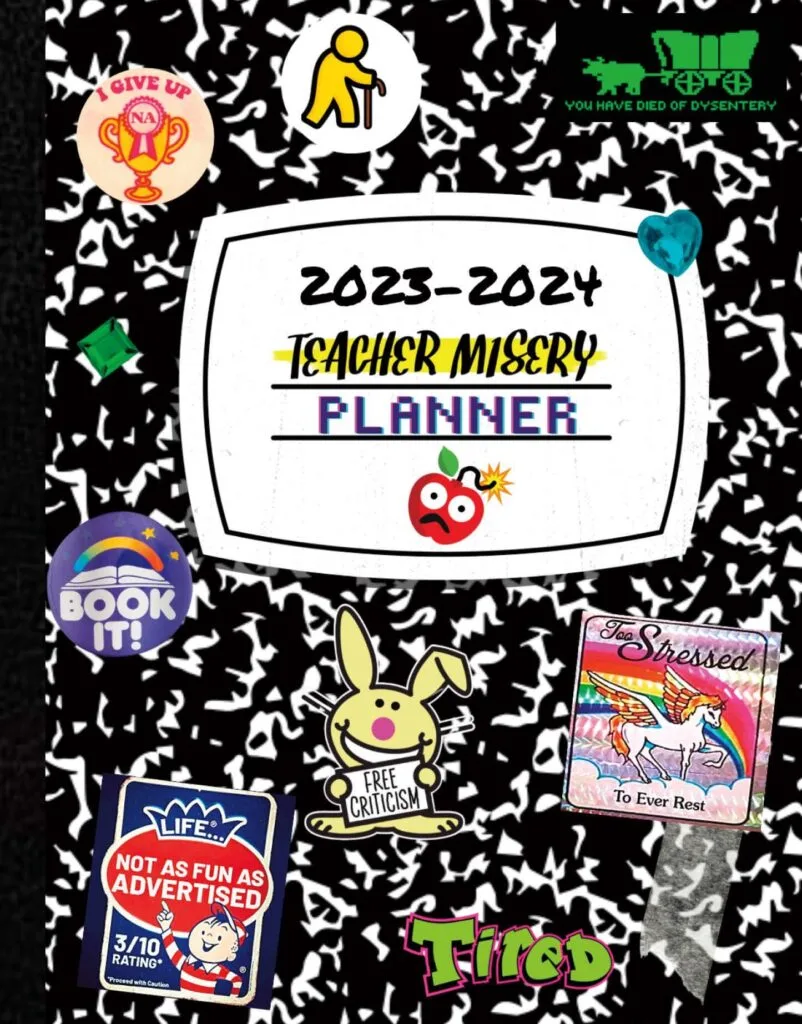
Shameless plug #2 – muahahahahah. This one, however, is even MORE relevant than my book.
Enclosed in the glorious pages of the Teacher Misery Planner, you’ll find spaces for:
- Recording grades and Individualised Education Plans
- Lesson plans
- Notes (and venting)
- Student details
- And plenty of sarcasm and silly activities to keep you sane!
It’s a fantastic tool in the utility belt of beginner and veteran teachers alike. One way or another, I’d recommend a good system for planning the day-to-day of teaching. But this is by far the best system you’ll find.
3. A School Supplies Box Just for You!

If your school gives you little to no supplies, including basics like pencils and pens, I recommend getting a school supplies box for yourself. I emphasize that this is ONLY FOR YOU because students will ask for these items every single day. Once you start lending this stuff out, you can kiss it goodbye.
So unless you want to be buying these basics for yourself all year long, put them in the box, put the box in a locked drawer, and then forget it’s there!
4. Travel File Organizer

The amount of paperwork you are going to deal with on a daily basis is entirely unreasonable! You need to find a way to make it make sense to you.
A travel file organizer will keep you from getting utterly confused.
This goes double if you don’t have your own classroom and are shifting around a lot.
5. Letter Tray

I will admit I am not the most organized person. It took me a while to find a system for all the class and homework grading that was simple enough for me to stick with. That’s when I came up with the Jane Morris-patented easy-as-pie two-tray system!
The central aspect of this system is the letter trays. I specifically use two trays per course. One serves as an “inbox” for work that has not been graded yet, meanwhile, the other is an “outbox” for work that has been graded and needs to be handed back.
These particular trays come with extra paper holders at the back. That’s super useful because they’re a great place to put extra worksheets that students miss! You will need to buy at least two trays per course section or subject to stay organized.
6. Cascading Wall Organizer
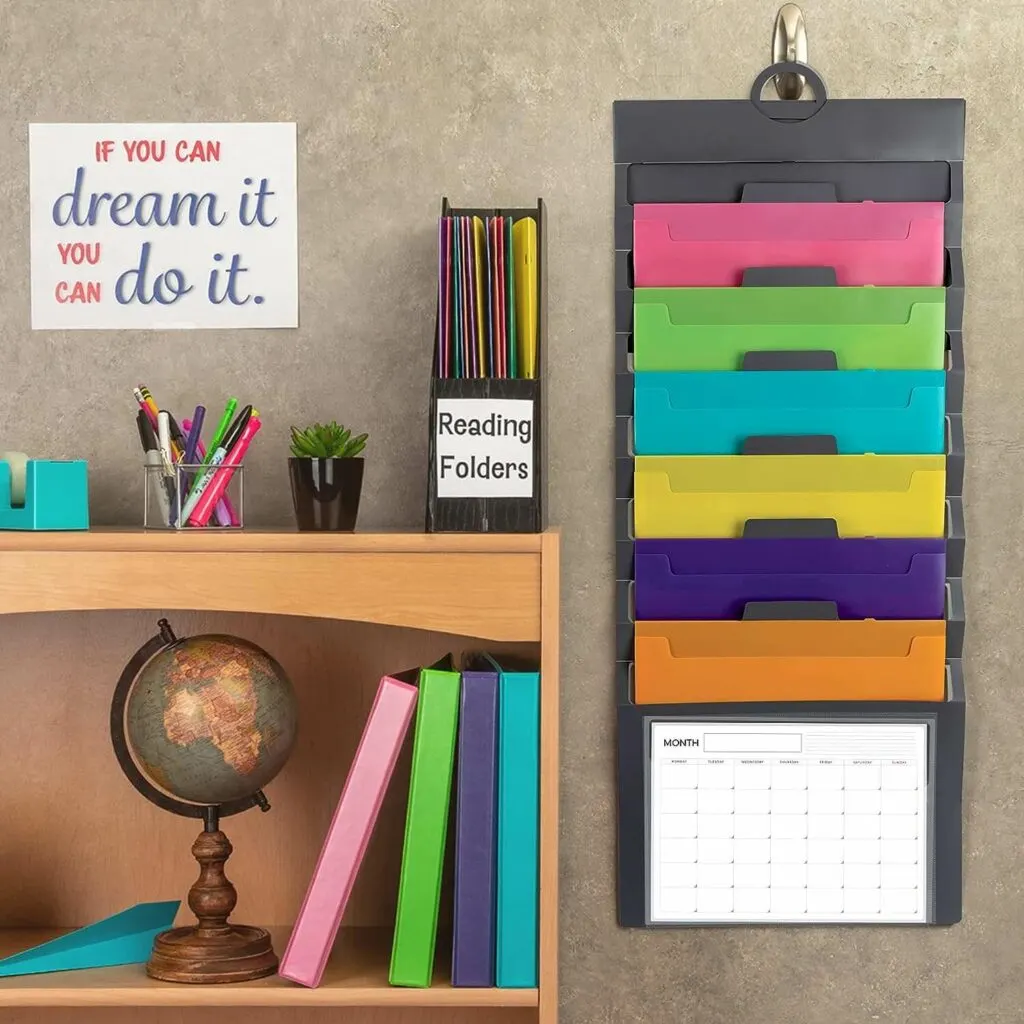
They will interrupt you to ask what they have missed. Depending on how long they’ve been out of class, you might not even be sure.
While much of your work will be online, you will still do some things on paper. If you get a cascading paper organizer for each course you teach (note: course not section), you can put all of the extra papers you have every day in there. Then just let your students know that before asking you what they missed, they should check the organizer for anything unfamiliar.
7. Something to Get Their Attention!
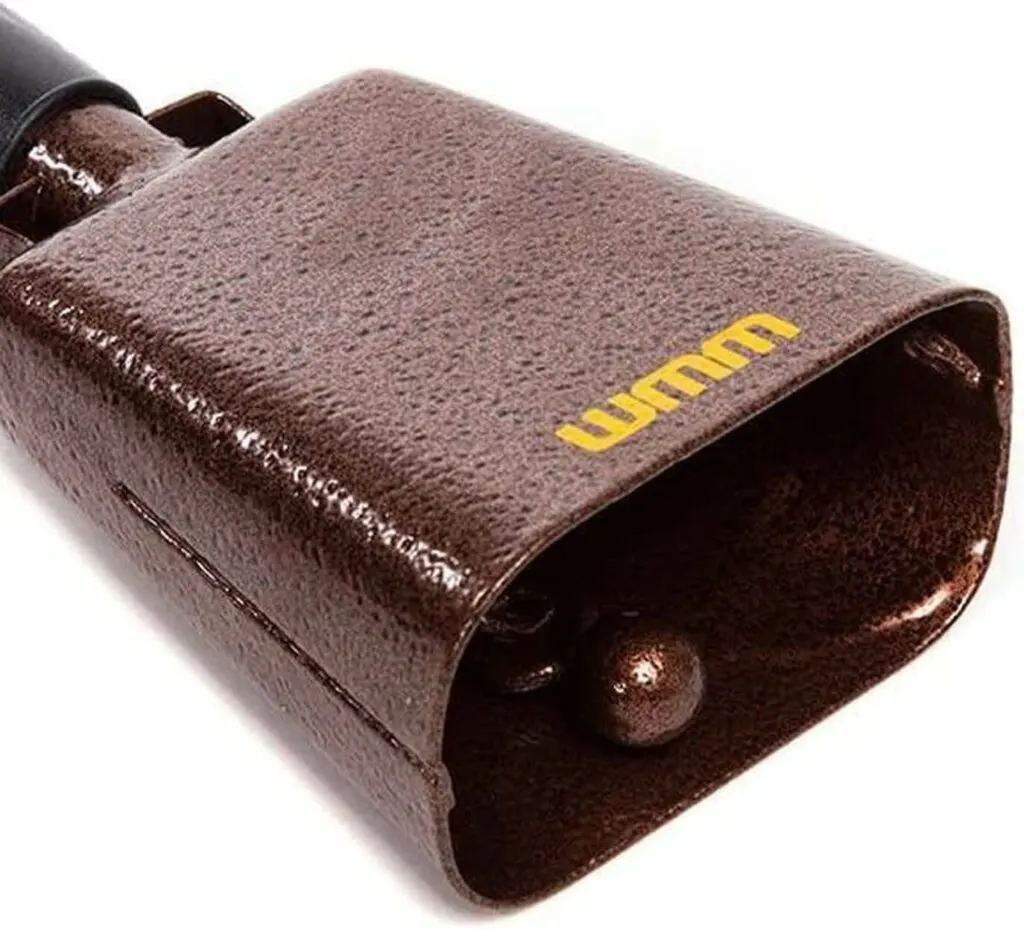
Students of all ages get noisy and don’t necessarily get quiet again when the teacher demands it. To prepare for a particularly rowdy class on your first day of teaching, I recommend getting a cowbell, a small megaphone, or even a screaming goat button (lol). It will create a noise distinct enough to stop them in their tracks.
Just make sure you hide your wonder item! If the students get a hold of it, you’re guaranteed a big fat migraine for the day and really nothing else.
More Beginner Tips for a Teacher’s First Day
If I could go back all those years to my first year of teaching, there are a few things I would emphasize for sure. Here are my top tips to manage your first year as a new teacher:
- The basics matter when it comes to getting through the day. This means drinking enough water, always packing lunch, taking the time to eat your lunch, and getting enough sleep. This stuff is 100% integral to good emotional regulation, and good emotional regulation is 100% integral for ALL teachers.
- Always put yourself first. Set the pattern of what you want your new career in teaching to look like. At the end of the day, it’s a job. Give it your all, of course, but not all of you – there is a difference.
- Don’t compare yourself to others. There will always be one colleague who seems to be the perfect representation of all the qualities that make a great teacher. They are always full of energy and enthusiasm and never seem to have an overload of papers to grade.
But guess what? Who cares! They are probably really good at making it look that way while under the surface they are just as frantic as you. - Remember that no year of teaching will be as difficult as your first. As impossible as the whole thing seems sometimes, it gets more manageable the more you do it. And the more that you find systems that work for you!
- Do the paperwork that matters and chuck the rest. If you try to grade every item the students do, you will never have a life outside of work. Pick the most important assignments, give feedback on those, and give the rest completion points.
Another classic new teacher mistake is to give a ton of feedback to every student on every assignment. It is admirable… but most students don’t give a crap about your feedback, and that is the reality of it.
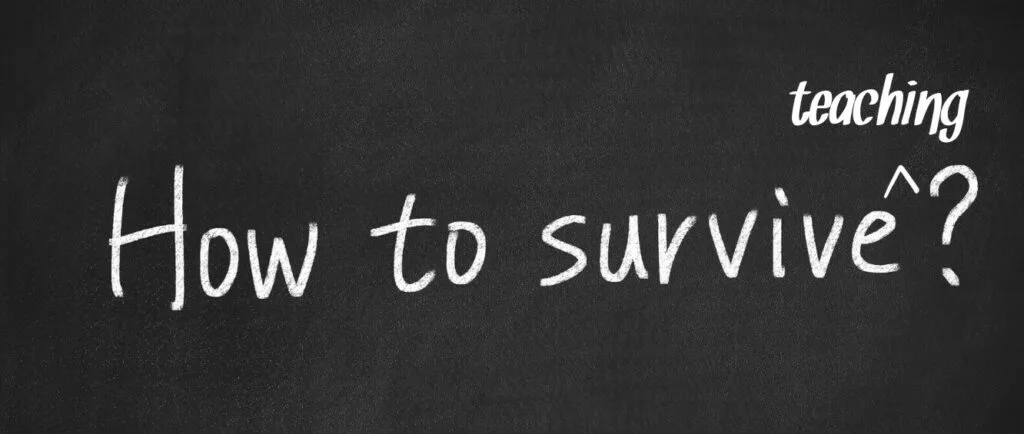
Surviving Your First Day of Teaching:
My Advice for New Teachers
It’s all about survival. You will learn; you will grow. And teaching DOES get easier compared to your first day and year.
But as a brand new teacher, bushy tail and all, there is the need to survive. Your first year will level you (and more than once), so unless you want to end up quitting teaching mid-year, get the inside guide for new teachers on how to survive!
Best Tips for New Teachers on Classroom Management
There is no magic formula when it comes to classroom management. Every class has a different mix of personalities and needs. Meanwhile, not every method works for every kind of teacher. You will have to try out a few things before you find what works best for you. However, there are two truths about classroom management that are useful in every classroom in every kind of setting.

- Relationships matter. Don’t be their friend, but don’t be militant either. Find an in-between of the two that works for you. If you are too strict and never show them that you are human, they will hate you and look for ways to rebel against you. But if you are too nice, they will take advantage of you and talk over you.
The best way to handle a student who is consistently disrespectful in class is to take them aside and ask them why they are acting like that. Most of the time, without their audience of peers, they will feel bad about how they’ve acted and want to do better. Give students a similar level of grace that you would an adult to propel their own change. But above all, don’t try to be a hardcore disciplinarian if it doesn’t come naturally to you. I am a very passive person by nature, and when I try to be strict, it fails immediately. What works for me is having honest conversations about my feelings and my struggles. Students usually appreciate where I’m coming from and back off. After all, they like being talked to like adults and like real people. - Chaos reigns. Love it or hate it, it’s the law of nature! You have a classroom full of young people, so you can’t expect them to be quiet and compliant all the time. Sometimes a little chaos is okay. If you don’t get comfortable with that, you will lose your mind.
Quotes About the First Day of Teaching
I asked my teacher followers to provide their best words of advice for new teachers on their first day. Here are my favorite responses.
- “Have a plan for self-care practices in place before even starting the school year.”
- “If you go home and cry on your first day, that’s pretty normal.”
- “Don’t overthink it! you are probably doing more good than harm.”
- “Don’t try to reinvent the wheel! There are so many great lesson planning resources out there that you can tweak to fit the needs of your students without spending hours and hours designing an original lesson from scratch.”
- “Don’t take anything home unless you’ll lose your job if you don’t do it!”
- “Relax! Like wild animals, they’re more scared of you than you are of them.”
- “Every day is a fresh chance to start over. If you had a bad day today, it won’t be like that tomorrow.”
- “Don’t be hard on yourself. You’re going to make mistakes.”
Buy Some Merch · Support the Site!
Teacher Misery is by the teachers and for the teachers. Our mission to improve the lives of teachers everywhere.
If you’d like to support the cause, buy yourself (or the burnt-out educator in your life) a gift from our merch store. And, YES, they are all as sarcastic as you’d hope. 😉
Every dollar supports the commiseration!

FAQs from New and Beginner Teachers
And to wrap up, here are some frequently asked questions often posed by new teachers before their first day!
Do teachers get nervous on the first day?
Yes, absolutely and definitely. Teachers with 25 years of experience still get nervous on their first day of a new class! But it’s not how nervous you get that defines your capability as a teacher – it’s how you handle it.
Is it normal to cry as a first-year teacher?
Honestly, yep. Some teachers might not be the crying type or be… *ahem*… therapy-adverse… and those teachers might opt to throw a laptop out the classroom window instead. But your first year of teaching is generally so stressful with so many highs and lows that a midday breakdown in the car is way more common than it should be. I was known to cry throughout my teaching career long after the first year – it’s normal.
How do I overcome teaching anxiety?
Practice! The whole thing is practice. Of course, all the standard tips for good mental health still apply: good diet, good sleep, good exercise, mindfulness, counseling, and work-life balance (hah!). But, at the end of the day, only practicing and developing your own systems that you’re confident in will alleviate that anxiety. And, of course, remember that it’s just a job and there aren’t truly any stakes except the ones you create.
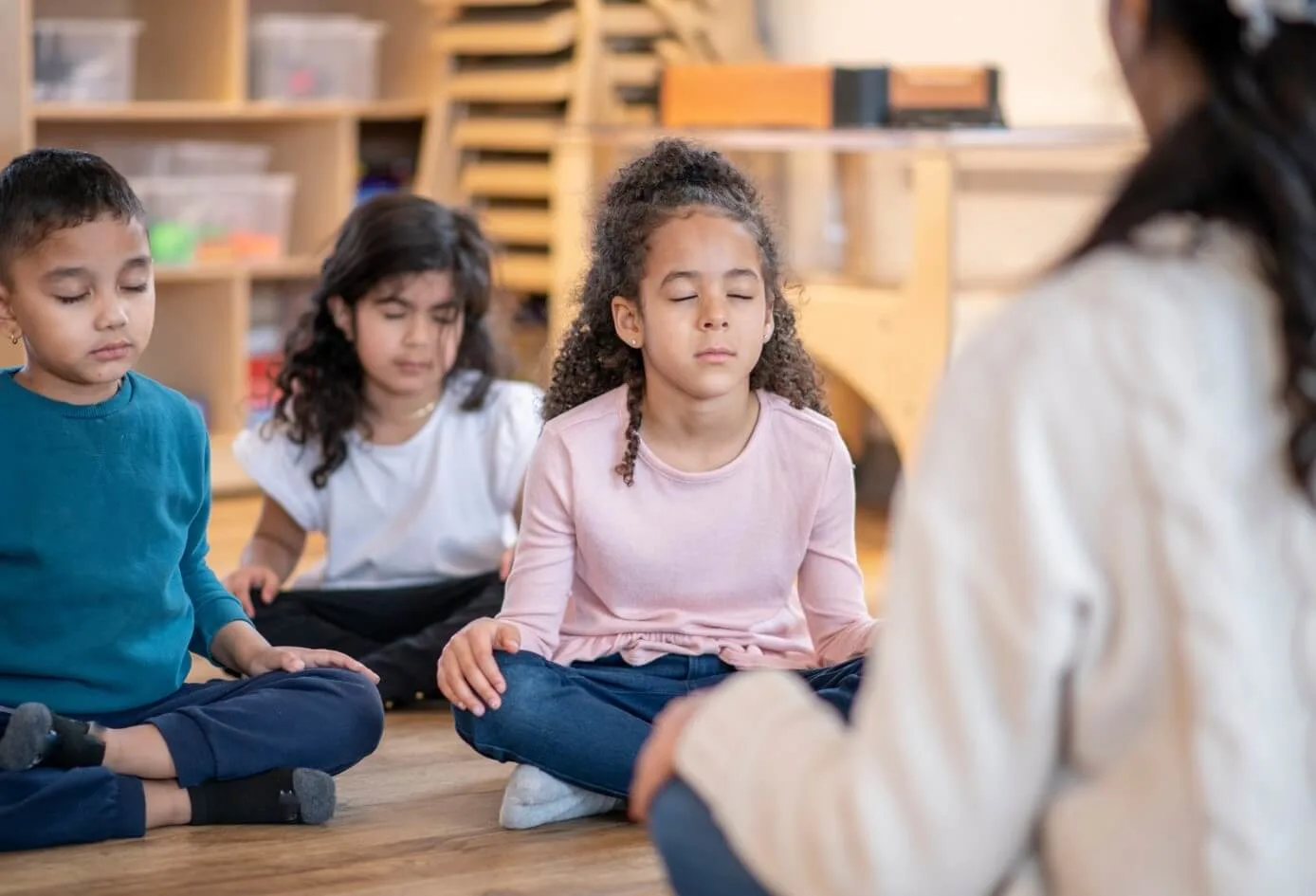
Go Home and Let Go!
The most important thing you can do so you can keep doing this thing every day is to take care of yourself! Go home when the day ends and let it all go.
Watch television. Sit on the couch and stare at the wall. Go for a walk. If you do more work or even think about school too much, you will surely burn out.
Keep in mind that no year of your teaching career will ever be as hard as your first year. In the beginning, your skin hasn’t thickened up yet and you will take everything personally. How could it not be personal? Eventually, you will transcend the beginner teacher phase and become confident in your abilities to the point that it won’t matter what anyone else thinks.
You also have to put in a huge amount of work during that first year of teaching. You are starting from scratch, developing all the materials, and making lessons all on your own. You will be spending all of your time developing lessons and grading, and you might think that you will always have to devote this much time to it. But you won’t: you’ll become more efficient.
There’s a bit of a hazing period that every new teacher goes through. New teachers need more support, and part of the hazing is that you’re given the worst classes that no one else wants. You’re also going to be talked into running a million clubs and you should probably do some of that to show that you’re “a team player”. But once you have a couple of years of experience and you’re considered a permanent part of the school, then it’s somebody else’s turn to be treated like a piece of trash.
It ain’t right, but it’s the way it is. That’s just part of why I left!
But most importantly, expect the crazy. Be ready for the crazy. Be crazy in return.

Get silly! Get stupid! Have fun even when there is no room for it!
Don’t take anything too seriously. Laugh at EVERYTHING. Be flexible.
Be honest with your students about everything and they will appreciate it and you. Tell them the standardized test they have to take is stupid and a waste of time and doesn’t measure their worth. Then try to squeeze in a lesson about something you are truly passionate about, even if it’s only for five minutes.
And above all, remember that there is truth in the fact that you never really know who you are getting through to. You really can’t judge kids too quickly. Some are much tougher to crack than others, but almost all of them are capable of being reached in some way.
So remind them that you aren’t trying to torture them: you are just trying to do your job and make it as painless as possible. And hopefully, you’ll both learn something from one another along the way!
Just be yourself and be real and the kids will reciprocate. I mean, a lot of them will still be turds. But underneath they are grateful. They just don’t even know it yet.
And above all, just remember…
